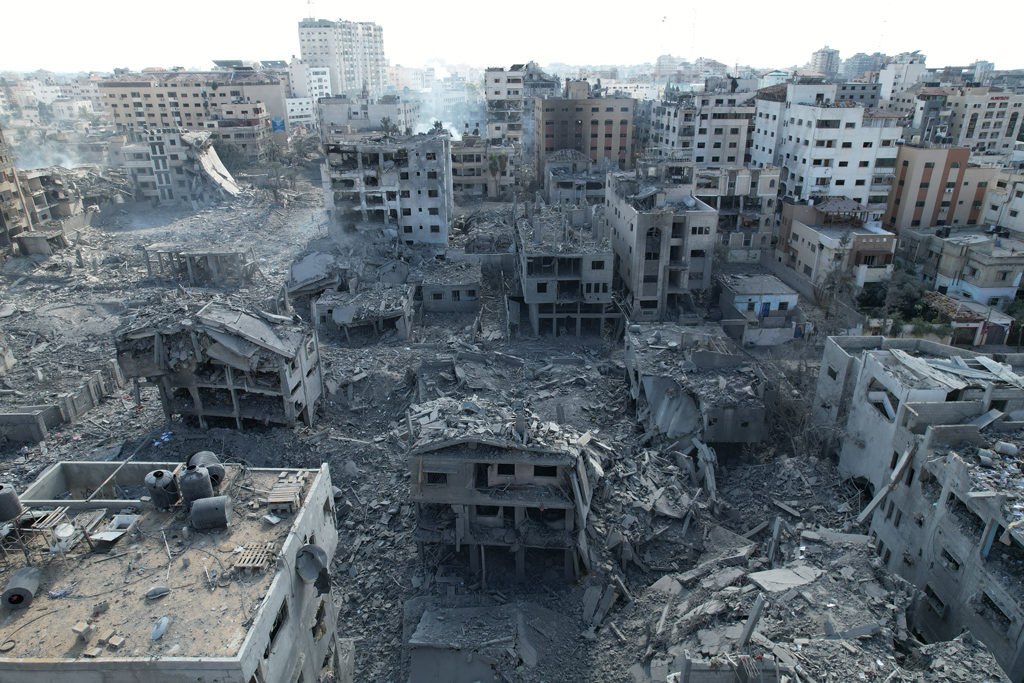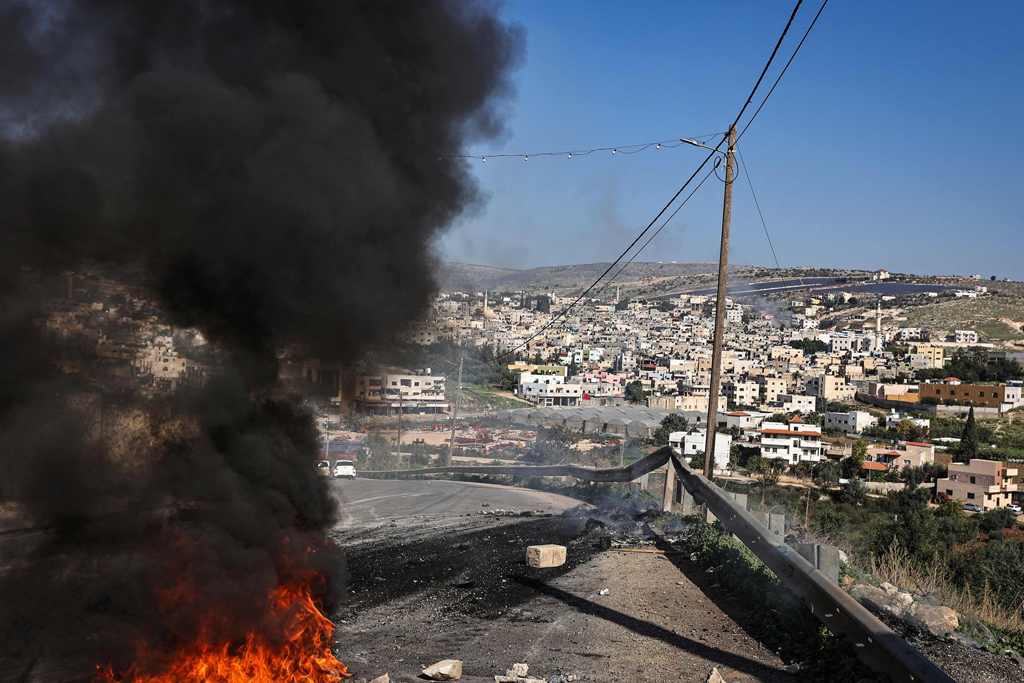
Türkiye's guarantor proposal and the failure of Netanyahu
Important parameter for guarantor model is Israeli government and its expected transformation, which is highly probable in the short term after its clear failures
Share
The cost of the Gaza conflict is not limited by the images circulating in the news but goes beyond them. The long-term impact of the conflict will be a devastating burden as a legacy to coming generations in the form of cyclical revenge with no end. For humanitarian purposes and to facilitate a resolution in the long run, Türkiye has proposed a guarantor model. With this step, it may be easier to calm the escalation in Gaza and prevent the already intense humanitarian catastrophe. This proposal must satisfy the expectations of all parties to th econflict and be able to establish a landscape within the framework of the customary principle of goodwill. The scope and feasibility of a guarantor model need to be scrutinized, at least, to start a debate on what options exist. This analysis aims to encourage a discussion on what civilized steps could be taken through a guarantor model in many other options, as an alternative.
Scope of Türkiye's guarantee mechanism
The guarantee mechanism proposed by Türkiye is a measure to manage the current crisis to calm the conflict, reduce risks, and facilitate the transition period for a permanent resolution. Given the nature of UN peacekeeping missions, the mechanism may lean on observing the established order, assuming the responsibility for indirect communication between the parties, and reporting violations. Nevertheless, a memorandum, previously agreed to by the conflicting sides, would design the technical details such as missions, procedures, assets, or rules of engagement. The benefit for both Israel and Palestinians is not difficult to predict. Israelis would benefit from this mechanism by reducing the risk of another Oct. 7-like surprise attack and continuing normalization with the region. The Palestinians, on the other hand, may start a refreshed internal recovery, focus on cohesion, and prepare for a political resolution as far as "trust" finds its way. In this sense, guarantor state(s) may prevent the coercive acts of both parties and humanitarian catastrophe through well-established communication and trust-building measures. Eventually, Israelis and Palestinians will be obliged to respect the established order and avoid violence against each other.
Why is it important?
The escalating tension and concurrent hostile environment of the contemporary era have persisted for a century. Israel’s unilateral military interventions and police oppression have taken away the basic rights of Palestinians to live with dignity, while Israelis’ quest for a safe life is just a dream now due to the perception of Palestinians as threats. The low-profile challenges of Palestinians, on the other hand, do not promise a success story because of the lacking political and social cohesion among the Palestinian factions. The losers in such mutual vulnerability have been the civilians on both sides, but primarily the Palestinians. Türkiye’s proposal becomes an alternative to the existing deadlock at this point. If the issue is to satisfy the security concerns of Israel and the sustainable stability and safety of the Palestinians, until a resolution is set, there should be no direct contact between them. An external political and military entity needs to bridge the communication and prevent misunderstanding and miscalculations between both parties, as a vital mission to deescalate the tension. Given the fact that there exists no trust between Israelis and Palestinians, third parties contribute to establishing a manageable and sustainable environment as a referent and impartial body. In this sense, "guaranteeing" may be a transition period as an interface on the way to consolidating a resolution option. Such a structure may protect Palestinians from the unilateral interventions of the Israelis and vice versa while Israel may direct itself to an actor to push Palestinians to comply with the terms of an agreement. An impartial country other than the most preferred state of both,three states in total, may assume responsibilities in security, humanitarian assistance, political resolution efforts, or conflict prevention.
Capacity of Türkiye in implementing a guarantor model
Türkiye was able to complete a normalization process with Israel, leaving behind the disputes, after the "one-minute" incident of 2009, low-chair crisis of 2010, and the Mavi Marmara incident the same year. Meanwhile, Türkiye has soft power, or persuasion capacity, with Palestinian groups. Hence Türkiye may play a prominent role in mediating parties, together with Qatar or Egypt. A guarantor model requires political, security, economic, or humanitarian efforts, plus the observance of international law, through a joint set structure of impartial actors. The ideal way to build a guarantor model is to have at least three actors with the consent of Israelis and Palestinians that they could rely on with confidence.
Once the conflict heightens the burden, Israel will have to review options for an honorable exit strategy through third parties. On the other hand, the current ultra-conservative political figures of the Israeli government will resist such proposals. The existing political entities ruling Israel would reject any resolution. Hence an important parameter for the guarantor model is the Israeli government and its expected transformation, which is highly probable in the short term after its clear failures.
The current Israeli government cannot be a party to any resolution due to its highly emotional stance since it lost its sense. Israel will be far from any peaceful suggestion focusing on the essential causes of the Oct. 7 attack and existing problems with Palestinians as long as the US and the European Union and its member states unconditionally provide political and military support.
Aside from Israel, the Palestinian side is politically fragmented. The armed wings of the Palestinians are autonomous in their decisions. A guarantor must be capable of persuading them to accept a calm transition period. In this sense, guarantors need to build a psychological climate to have the armed groups comply with the prerequisites of the agreement. Türkiye may be an appropriate option since Palestinian groups may accept this catalyst.
Nevertheless, last month’s hostage exchange effort, which was fragile and ended after seven days, indicates the difficulty of coming to the smallest terms of a shared understanding. In the final analyis, it is not the capacity of guarantors, but the political commitments, intentions, and cohesions of both Israelis and Palestinians that will be pivotal.
[Anadolu Agency, December 28, 2023]
Tags »
Related Articles







